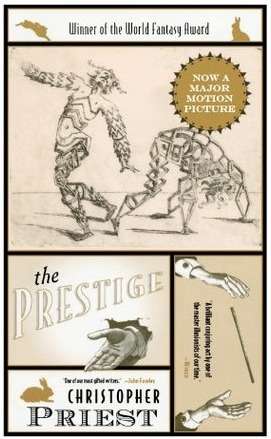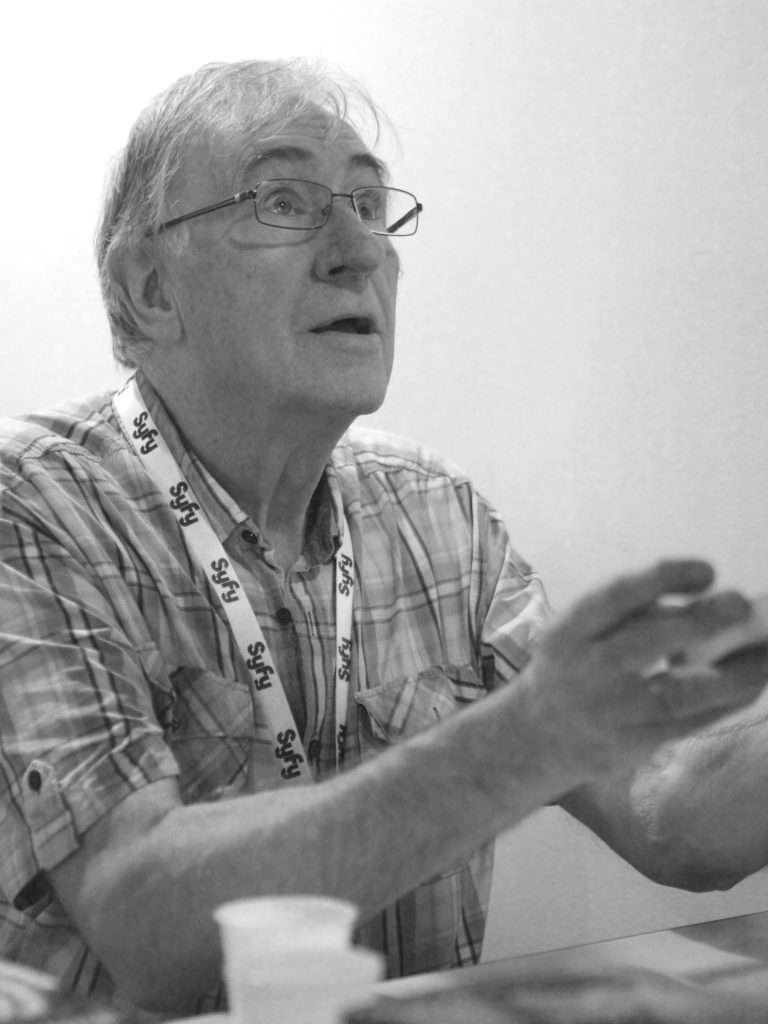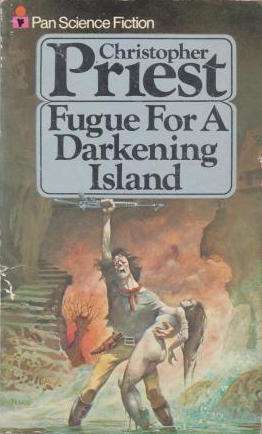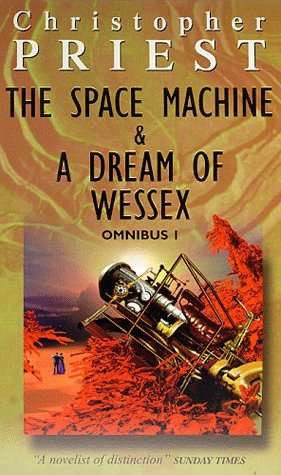We’ve implemented some new protocols around sending us messages via this website. Please email website “at” britishfantasysociety “dot” org for any issues.

For all things fantasy, horror, and speculative fiction
-
Announcement:

In Memoriam: Christopher Priest
The BFS were deeply saddened to hear of the passing of Christopher Priest, known to many of our members both for his work, and for his regular attendance at conventions. We thank Gary for sharing these words with us.

Yves Tennevin, CC BY-SA 3.0 https://creativecommons.org/licenses/by-sa/3.0, via Wikimedia Commons
Christopher Priest
14 July 1943 – 2 February 2024
by Gary Couzens
A social-media quiz that did the rounds recently asks you to name ten authors of whom you have read at least five books by. Another is to name anyone where you have read all their work. For me, Christopher Priest amply fulfils the former and regarding the latter, every novel published under his own name.
Christopher McKenzie Priest was born in Cheadle, then in Cheshire. Considering the preoccupation with memory, possibly misleading, in his work, he maybe had some of his own. When I interviewed him, he said that he had a vivid early memory of a V2 rocket going overhead…but as far as he knew, they didn’t go that far north. He started work as an accountancy clerk, while writing his first stories. His first publication was “The Run” in Impulse in 1966. His first novel was Indoctrinaire in 1971. The first phase of his career was more obviously inclined to science fiction than later, though influenced by the genre’s New Wave of the 1960s. His novels of that period include such significant novels as Fugue for a Darkening Island (1972) and Inverted World (1974). In the latter, the very strange nature of the protagonist’s world is found out to be a distortion of perception, a theme he would return to throughout his career. A Dream of Wessex (1977) brought this phase to a close, with a project of mutual virtual reality (as it might have been called) which has significant implications. If fantasy/non-reality can be created from reality, the novel implies, then so can “reality” be created from fantasy.

Towards the end of the decade, Chris began to write stories set in The Dream Archipelago, a place where time, memory and perception are mutable. This was the setting of several short stories and in part or whole the novels The Affirmation (1981), The Islanders (2011), The Gradual (2016) and The Evidence (2020). The Affirmation marked a major change in his work, in its story of a man in this world who has a doppelgänger in the Archipelago. By the end of the novel, the two realities have become inextricably entwined. This was to become a theme of much of his work, which took him away from SF as it was conventionally understood, though still clearly of the genre. Perception can be deceptive, often ambiguous, narrators not always reliable. For example, in one novel (which I won’t spoil), a first-person narrative turns out to be the work of two people, identical twins. Twins and doubles often feature in his work, and two or more different versions of reality, such as in the Clarke Award-winning The Separation (2002), which on the face of it is an alternate history with a different outcome to World War II. Novels continued up to Airside (2023), not easily described as SF or even fantasy, but clearly of a piece with his earlier work and evoking J.G. Ballard in its treatment of the liminal spaces of this world, in this case airports. Chris was working on a study of Ballard at the time of his death. While he may often have been at odds with genre SF, he did receive recognition outside the genre. In 1983 he was on the first of Granta’s once-a-decade list of Best Young British Novelists. The Prestige won the James Tait Black Memorial as well as the World Fantasy Award and is his best-known novel due to its being filmed in 2006, directed by Christopher Nolan.

Being a full-time writer, Chris produced other work than his novels and short fiction. He wrote drama for both radio and television. Chris also wrote film tie-in novels(Mona Lisa, Short Circuit, eXistenZ) under the pseudonyms Colin Wedgelock and John Luther Novak. It’s believed that other pseudonymous work remained unacknowledged. Chris also co-wrote the autobiographies of athlete Sally Gunnell and astronaut Helen Sharman. His chapbook The Book on the Edge of Forever, taking Harlan Ellison to task for his failure to produce his Last Dangerous Visions anthology, was harsh but hard to dispute, and it gained him a Hugo nomination. Chris was Vice-President of the H.G. Wells Society, having paid tribute to Wells in his 1976 novel The Space Machine. He was also involved in SF fandom, attending conventions for some sixty years, and was one of the Guests of Honour at the 2005 Worldcon in Glasgow.

Chris was married four times, three times to fellow writers: Lisa Tuttle, Leigh Kennedy and Nina Allan, who was his partner from 2011 before they married in 2023. His daughter by Leigh Kennedy, Elizabeth Priest, is herself a novelist.
On a personal note, Chris was a writer I first encountered in the late 1970s, during the phase in my life where for a few years almost all fiction I read that wasn’t a school book was SF. Later on, I profiled him in 1997 for The Third Alternative, when his newest novel was The Prestige. The following year, I interviewed him by email for the same magazine, when The Extremes came out. I met him several times and kept in touch via Nina, who is a friend of mine. And now he has gone, but the work remains and will survive.
Explore the blog:
Blog categories:
Latest Posts:
Tags:
#featured (56) #science fiction (25) Book Review (264) events (44) Fantasy (231) Graphic Novel (13) horror (136) Members (62) Orbit Books (48) profile (43) Romance (17) Science Fiction (50) short stories (28) Titan Books (52) TV Review (15)
All reviews
Latest Reviews:
- THE HOUSE ON THE BORDERLAND by William Hope Hodgson
- Monstrum by Lottie Mills
- Mood Swings by Dave Jeffery
- Yoke of Stars by R.B. Lemberg
- Hera by Jennifer Saint
- The Black Bird Oracle by Deborah Harkness
- RETURN OF THE DWARVES By Markus Heitz
- Delicious in Dungeon
- Toxxic by Jane Hennigan
- THIS ISLAND EARTH: 8 FEATURES FROM THE DRIVE-IN By Dale Bailey
Review tags:
#featured (2) Action (4) Adventure (4) Book Review (28) Fantasy (18) Featured (2) Feminist (2) Gothic Horror (3) Horror (14) Magic (3) Orbit Books (3) Romance (6) Science Fiction (5) Swords and Sorcery (2) Titan Books (7)